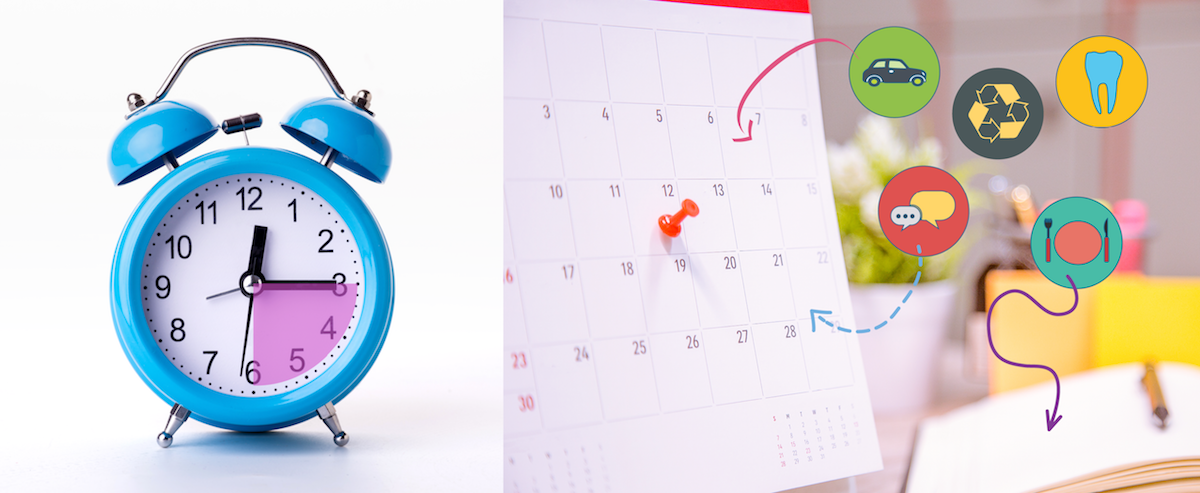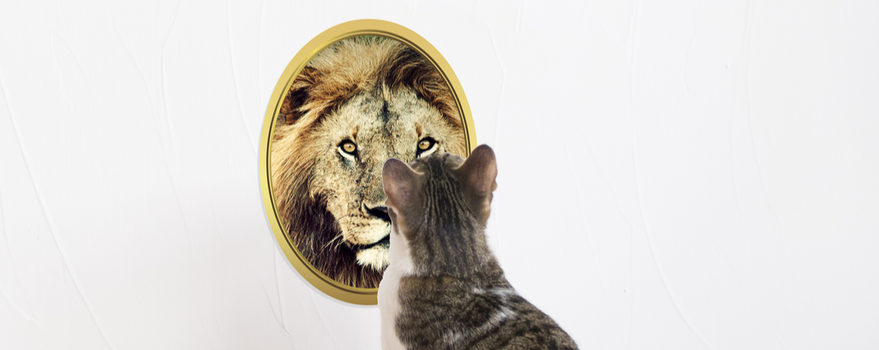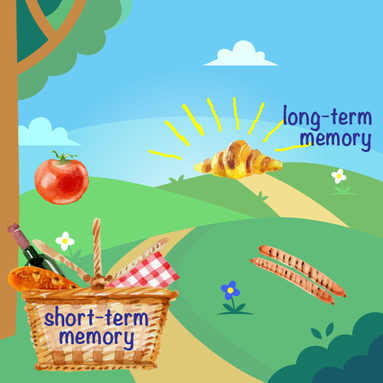| |||

Did you abandon your paper planner and calendars for the efficiencies of an electronic calendar? Have you forsaken analogue clocks in favour of digital ones? Is your brain overwhelmed with juggling bits of information and doing mental calculations?
While electronic calendars and digital clocks certainly have advantages, the downside is that for many people, they take longer for the brain to interpret. A paper calendar or planner can give you a broader context by organizing information in a visual way. (Often, an electronic calendar on a phone can be viewed only one small piece at a time, taxing your working memory as you mentally piece together the bigger picture.)
Similarly, an analogue clock can help your brain visualize the passage of time. When you see a digital clock, you need to do a quick mental calculation to figure out that you need to leave the house in 15 minutes. With an analogue clock, however, you can instantly picture a quarter of an hour because you know what a quarter of a circle looks like. While that quick calculation isn't a lot of effort, it can be one piece of information too many when you're also juggling shopping lists, packing for the day, sending kids off to school, or thinking about a problem that tasks your emotional energy.
Paper and electronic calendars can work very well in tandem. The electronic ones help you to collaborate with other people, and they can be programmed to give you auditory cues when an appointment or meeting is imminent. Paper calendars and planners can help you see the bigger picture, contain to-do lists in a consistent place, and give you a space to physically and visually plan large projects. (And besides all that, your important project information is backed up in case you drop your phone in a puddle!)
Try using Post-It notes on a large wall calendar to plan out when milestones in a project need to be completed. Another idea is to use stickers, icons, or doodles to visually represent tasks. At home, this can also be a very effective way to help children track their responsibilities.
Do you use a paper planner or calendar?
While electronic calendars and digital clocks certainly have advantages, the downside is that for many people, they take longer for the brain to interpret. A paper calendar or planner can give you a broader context by organizing information in a visual way. (Often, an electronic calendar on a phone can be viewed only one small piece at a time, taxing your working memory as you mentally piece together the bigger picture.)
Similarly, an analogue clock can help your brain visualize the passage of time. When you see a digital clock, you need to do a quick mental calculation to figure out that you need to leave the house in 15 minutes. With an analogue clock, however, you can instantly picture a quarter of an hour because you know what a quarter of a circle looks like. While that quick calculation isn't a lot of effort, it can be one piece of information too many when you're also juggling shopping lists, packing for the day, sending kids off to school, or thinking about a problem that tasks your emotional energy.
Paper and electronic calendars can work very well in tandem. The electronic ones help you to collaborate with other people, and they can be programmed to give you auditory cues when an appointment or meeting is imminent. Paper calendars and planners can help you see the bigger picture, contain to-do lists in a consistent place, and give you a space to physically and visually plan large projects. (And besides all that, your important project information is backed up in case you drop your phone in a puddle!)
Try using Post-It notes on a large wall calendar to plan out when milestones in a project need to be completed. Another idea is to use stickers, icons, or doodles to visually represent tasks. At home, this can also be a very effective way to help children track their responsibilities.
Do you use a paper planner or calendar?
Audio read and recorded by Fawn Fritzen.





